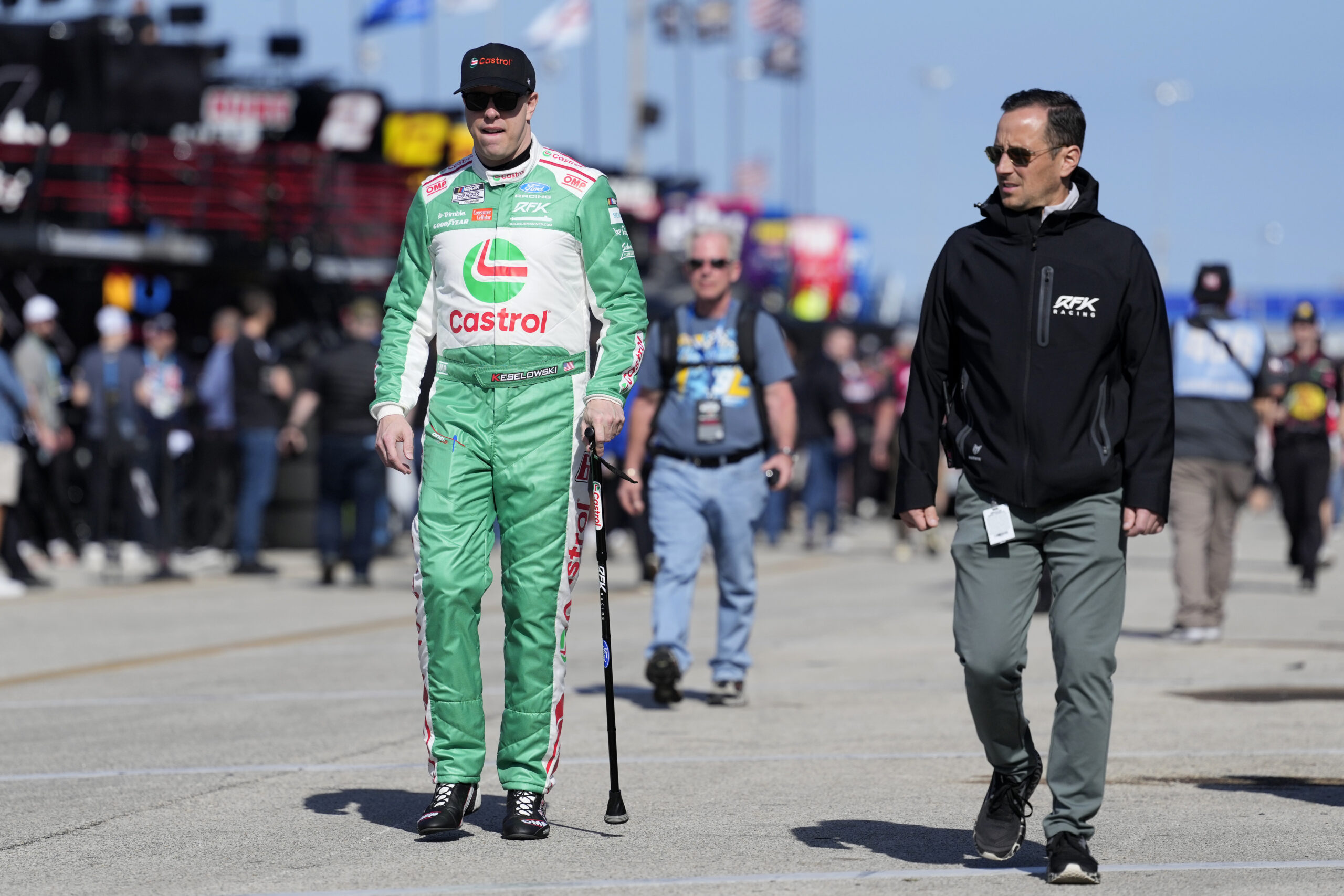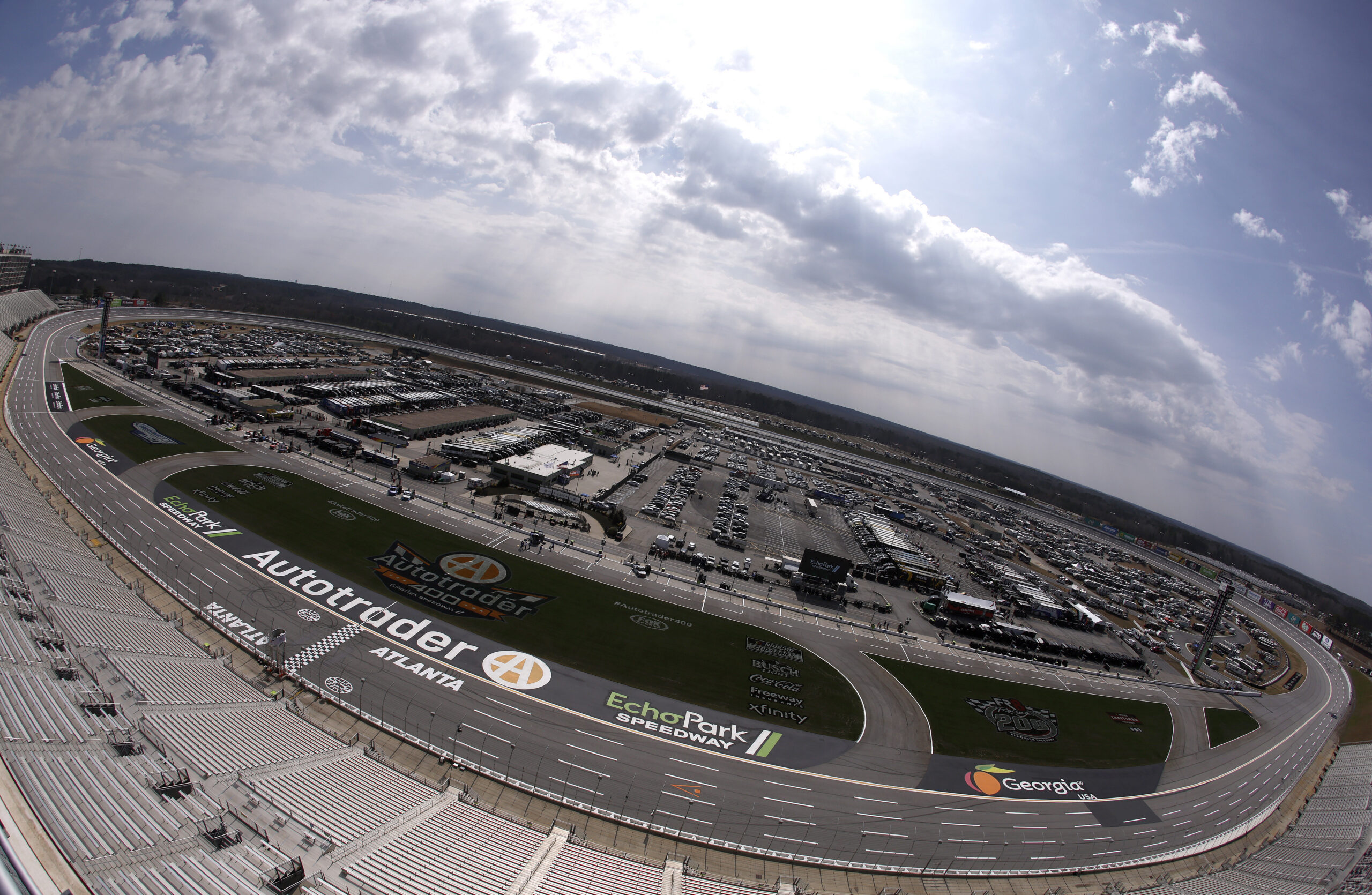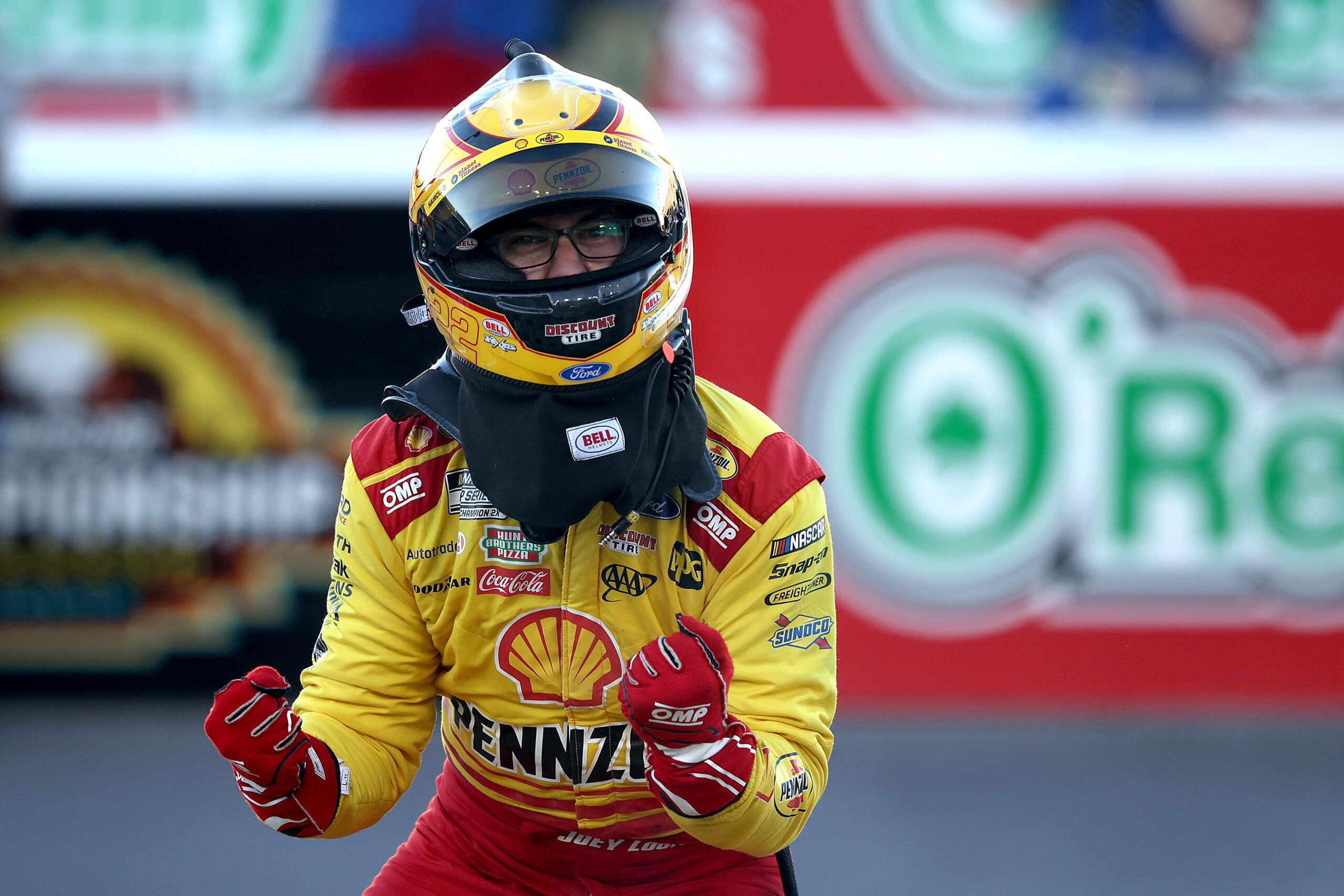
First off, I need to give credit to the inspiration for this piece. That honor goes to @CarnationBoi on Twitter for sending out this tweet.
it's time for a conversation pic.twitter.com/5V0usVp8ZN
— carnation™️🗿 (@CarnationBoi) May 23, 2023
Now whether said jokingly or not, Petty is rightfully considered the “King” of stock car racing. However, I am here to present that there is an argument that Pearson was a better driver than Richard Petty. Before you talk about how ridiculous that is, just hear me out.
From a 30,000 foot view, it seems like the case for Petty is pretty open and shut. Petty had a career 200 wins with seven championships while Pearson had only 105 wins with three championships. However, if we go deeper, the gap narrows considerably.
David Pearson made 574 career starts while Petty made 1,184 career starts. If figured out purely from those numbers, Pearson’s career winning percentage is 18.2%, while Petty’s is only 16.9%. Those are both absolutely absurd when compared to some of these Hall of Famers: Jimmie Johnson (12.1%), Bobby Allison (11.6%), Jeff Gordon (11.6%), Dale Earnhardt (11.2%), and Darrell Waltrip (10.4%).
Pearson wins that battle, but is it really fair to count the end of Petty’s career where he was not winning? Pearson himself even ran parts of seven seasons after his last career win. So let’s adjust the stats from there.
When adjusted for this, Pearson’s winning percentage is 19.9%, while Petty’s is 20.8%. So when both were winning races, Petty does have Pearson beat in race win percentage, albeit by a small amount. This shows that Pearson is closer to Petty than some may have originally thought.
But that does not tell the full story. This argument goes deeper when looking at championships and the concept of running part-time vs full-time.
Racing was the Petty family business during all of Petty’s racing career. The Petty family was really the first family who made racing their primary source of income. As a result, Richard raced full-time or close to full-time in 32 out of 33 seasons from 1960 until his final season in 1992.
This is a big reason why Petty won his seven championships. He was one of the best stock car drivers at the time, and, in an era where running close to full-time in the series was not as common, he ran close to full-time.
Pearson, on the other hand, never entered all races in a given season. There were only four years out of his career where he ran enough races to be considered a close to full-time competitor. Keep in mind that in this era, the Cup Series was running around 50-60 races per year, so running every race was not feasible even for someone like Petty.
How did Pearson do in those four seasons (1964, 1966, 1968, and 1969)? Well, the numbers speak for themselves. Pearson amassed 50 wins, three championships, and a winning percentage of 24.8%. Pearson won a quarter of the races he entered during this time.
Here are Petty’s stats between these years from 1964-1969. Keep in mind that Petty ran full-time one more year than Pearson in 1967. Petty’s stats are as follows: 74 wins, two championships, and a winning percentage of 28.9%.
One other note is that the one full-time season Pearson did not compete in while Petty did was 1967 when Petty and his Chrysler HEMI engine won 27 races. Pearson ran a Dodge to start the year in 1967 before switching to Ford.
If Pearson ran full-time for Chrysler Corp. in 1967 with a HEMI engine on his back, Petty certainly does not have 27 wins that season. Not only that, but Pearson still won more season championships than Petty during this time. When these two guys were at the top of their game, Pearson was at the very least as good if not better than Petty.
After 1969, Pearson never entered more than 22 races in a season, while Petty continued to run full-time winning five more season championships. When Pearson was running, however, he was still incredible.
Despite not running full-time, Pearson won 11 out of 18 races entered in 1973 and 10 out of 22 races entered in 1976. He even had two top-10 points finishes in 1974 (3rd) and 1976 (9th) despite not running the full schedule. Just imagine, theoretically, if Pearson runs full-time and wins the championship in 1967, 1973, 1974, and 1976.
This means Petty has two less championships, and Pearson has four more, giving Pearson seven championships and Petty five. Even if we give Petty the 1967 championship, Pearson and Petty are still tied at six championships. Pearson also would have undoubtedly eaten into Petty’s win total as well.
If Pearson ran full-time throughout his career, he certainly has more championships, Petty does not have 200 wins, and Petty probably does not have seven championships. Now let’s look at the biggest margin in Pearson’s favor, head-to-head statistics and the opinion of King Richard.
The most astounding statistic when looking at this is the amount of 1-2 finishes that the two had. Pearson and Petty finished 1-2 63 times during their illustrious careers. The winner in that head-to-head is Pearson with 33 wins to Petty’s 30.
The most iconic of these 1-2 finishes was the 1976 Daytona 500. Here, Pearson and Petty finished 1-2 despite the two spinning off of turn four and wrecking their cars. The 1974 Firecracker 400 is in the conversation too after Pearson backed off to allow Petty past only to take the lead back and give Pearson the win.
Even looking at the four seasons that the two were running full-time, Pearson beat Petty in the points in three out of those four seasons. When it came to wins, Pearson had 50 wins while Petty had only 47 wins. When the two were competing against each other, Pearson came out on top more often than Petty.
Now what about the opinion of the one who was a part of this iconic rivalry? Richard Petty had this to say to Stock Car Racing Magazine in 1993 according to the Motorsports Hall of Fame of America.
“Writers were asking me last year who was the best driver I ever raced against. I told them David Pearson. David and I ran more firsts and seconds than anybody else, and we raced together on dirt tracks, superspeedways, road courses, big tracks and little tracks. It didn’t make any difference, you had to beat him every week.”
Petty also at one point called Pearson, “The best racer that ever was.” Who can argue with Richard Petty? There was never more respect in a rivalry in all of sports.
As for who is better, these facts show that that can be highly debated. However, the main thing to take away is the fact that these two respected each other highly. A level of respect that some say is missing from NASCAR today.

by Neha Dwivedi
Brad Keselowski showed he can still wheel it at Daytona, establishing that even a broken femur, one of the worst hits an athlete can take, could not keep him on the sidelines. In fact, on the final lap, he was still in the hunt, attempting to go three-wide with Elliott before Riley Herbst’s move up the track wrecked both his plans and his car, leaving him with a P5 finish. Now, while he is ready for the Atlanta race on Sunday, his planned COTA run on March 1, 2026, hangs in the air, as he is still recovering from his injury, and a road course race requires more strength and leg work than oval races. Hence, Joey Hand is lined up as the relief driver for the No. 6 Ford.
Brad Keselowski is still unsure on his status next week for COTA. Joey Hand will be his backup driver. Keselowski could start the race and then get out of the car. Keselowski on Hand as his reserve driver and COTA scenarios: @NASCARONFOX pic.twitter.com/8hVvzDgE5t
— Bob Pockrass (@bobpockrass) February 21, 2026
Speaking in the Atlanta media scrum, Keselowski said he is glad to have Hand in the wings, noting he serves as Ford’s reserve for road courses. Hand has raced and won across the globe, even finishing P4 in the Chicago Street race back in 2024 for RFK Racing. That’s why Keselowski called him “a great guy,” adding that “he’s been very helpful.”
Still, with Hand being smaller in build, fitting him into the RFK Racing co-owner’s seat could pose a risk. When Fox Sports reporter Bob Pockrass floated the idea of Keselowski starting the race and then handing over mid-way, the 2012 Cup champ left the door open. “No, it is possible. So we kind of run through all that. and we’ve got a lot of good options with it,” he said, keeping all cards on the table.
The team has already been laying the groundwork, and Keselowski sounds like someone bracing for a game-time call on whether he can go the distance. He admitted, “I’m going to just see how I feel. I’ve got some more stuff, tests next week to get through with medical tests and physical tests, and I’ll probably just see how those go and make a decision on what’s best for the team,” after navigating the G-forces at Atlanta and eyeing more medical checkups.
That leaves the door ajar for a split-duty play, where Keselowski could start the race to bank points and then hand over the wheel to a stand-in, most likely Hand, if Keselowski’s leg refuses to cooperate.
During the off-season, Keselowski broke his right femur in an accident while he was on a trip with his family, out skiing, in December 2025. He was cleared for the Daytona 500, but road courses like COTA demand more from the body. Even during Daytona Speedweeks, he hinted that while he could handle straight-line racing, a full road-course grind might be a different beast. Ahead of the season opener, the RFK Racing owner was seen moving through the garage with a cane, indicating that the road back still has miles left.

by Neha Dwivedi
After Daytona’s chaotic run at the superspeedway, packed with fuel-saving, pileups, and a last-lap crash before Tyler Reddick drove it home to hand 23XI Racing, Denny Hamlin, and Michael Jordan their first Daytona 500 win, the 38-driver pack is now ready to go to the next mini superspeedway stop, EchoPark Speedway. But rain and lightning have already pulled the plug on Cup Series qualifying on Saturday morning, so the metric will set the grid. Here’s where the field will roll off for the Autotrader 400.
Sunday is set. ⬇️ pic.twitter.com/AiSYg7NV5V
— NASCAR (@NASCAR) February 21, 2026
The formula previously relied on four criteria: the car’s rank in owner standings (35%), the driver’s finish in the last race (25%), the car’s finish in the last race (25%), and the driver’s fastest-lap rank (15%). For full-time pairings, the two 25% chunks often merged into one 50% slice. But for 2026, NASCAR trimmed the math. Now it will all come down to the car’s place in owner standings (30%) and the entry’s finish in the last race (70%).
By that yardstick, Reddick seizes pole for Sunday and the first pit box of the season’s second round. If 23XI keeps him in the hunt through the draft at Atlanta, he could go back-to-back and start the year two for two.
Team Penske will get another chance at a superspeedway-style track. Joey Logano, who finished the Daytona race last weekend in P3 and won his Duel, will line up alongside Reddick on the front row. The former Atlanta resident will return to the ground he knows well, and if the calendar keeps its rhythm, his even-year run could start early.
Ricky Stenhouse Jr., runner-up in the 500, will start from the third.
On his outside will sit hometown hope Chase Elliott, who came within a turn of stealing Daytona before Herbst tagged the rear of the No. 9 and sent it into the wall, leaving him fourth. But given that he still showed he can slice through traffic on a drafting track and be there when it counts, it might pay off very well at Atlanta. He left Florida without the trophy but with points in hand, two wins on the track, and an average finish of 11.4. He might just be the fan-favorite in Atlanta.
Rounding out the top five is Brad Keselowski, who opened the points season in P5. It is not a bad way to kick off the year, and the former EchoPark winner and last summer’s runner-up understands how to stay in the fight here.
Zane Smith, Chris Buescher, Riley Herbst, Bubba Wallace, and Josh Berry fill out the top ten on the grid.
Casey Mears in the No. 66 Garage 66 Ford will sit this one out after the team pulled the entry due to damage from Daytona Speedweeks.
Meanwhile, open teams JJ Yeley in the No. 44 for NY Racing and BJ McLeod in the No. 78 for Live Fast Motorsports raced their way in. However, the Austin Dillon and BJ McLeod entries failed inspection twice, leading to the ejection of their car chiefs and the loss of pit stall selection.

by Bryan Aguiar
Joey Logano could break Richard Petty’s 47-year-old record for the most consecutive drafting-track races led this weekend at EchoPark Speedway. After leading laps in the Daytona 500, Logano has now led in 19 straight drafting-track races, dating back to 2023, tying a mark The King set from 1974 to 1979.
After leading nine laps in the Daytona 500, Joey Logano has now led in 19 consecutive drafting track races.
— NASCAR Insights (@NASCARInsights) February 18, 2026
This ties Richard Petty for the longest streak in NASCAR history. He has a chance to break the all-time record this weekend in Atlanta. pic.twitter.com/2gjUuYhxIq
Logano now has a clear opportunity to move past Petty and claim sole possession of one of NASCAR’s longest-standing superspeedway records, and considering his and Team Penske’s history of dominance in this style of tracks, it seems that he is poised to break it.